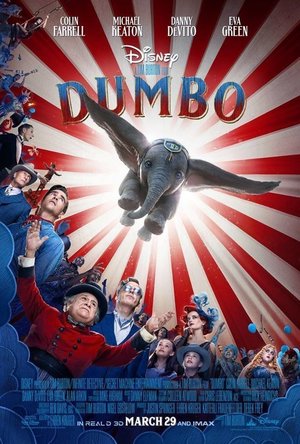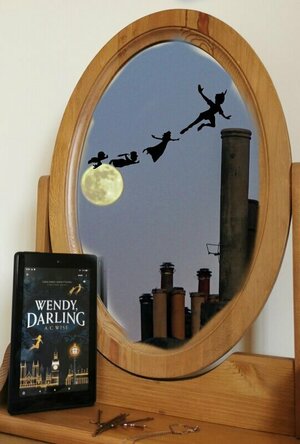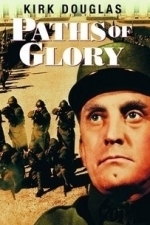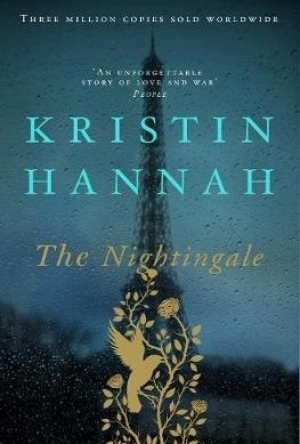Search
Gareth von Kallenbach (980 KP) rated Dumbo (2019) in Movies
Jun 19, 2019
Disney has continued their trend of live-action remakes of their animated classics with “Dumbo”. The film follows the same premise as the 1941 classic in that a baby elephant with giant ears is born into a travelling circus. Like in the animated film he is separated from his mother and soon becomes an unlikely circus act when it is discovered that his giant ears give him the power of flight.
In the new version we are introduced to Holt Farrier (Colin Farrell); who returns from WWI injured and dealing with the fact that his wife has died and he must raise their two children alone. Further complicating matters is the fact that Circus owner Max Medici (Danny DeVito), has sold the prized horses Holt used in his act in an effort to keep his struggling circus alive.
What has become a tragedy soon becomes a boon when wealthy industrialist V.A. Vandevere (<ichael Keaton) offers to make Max a partner and take him and his troup on at his fabled entertainment park with Dumbo as his featured star.
It is at this point where the film takes some wild deviations and becomes very linear with paper thin characters and an emphasis on effects over story.
Director Tim Burton has once again crafted a film filled with lavish visuals as his take on the entertainment park and circus is amazing; but it as usual comes at a cost. Like most of Burton’s works, the visuals are the star and key element and the development of characters and story are often given little more than lip service.
The same is true fro this film as we learn noting about the motivation of the characters and the villains play out as stock baddies without even a nod as to why they are so inclined to tehir action.s They are being evil just for the sake of being evil. The same can be said for the other characters as we are given very little reasons to care for them. There is a nice subplot with Eva Green but it is never fully developed and the worst part is that the title star almost becomes an afterthought in the final acts so we can be given scene after scene of lavinsh park visuals.
The film may be a bit to dark and intense at times for younger viewers and those who remember the original may have a hard time with this take of the film. It entertains at times but could have been so much better.
http://sknr.net/2019/03/26/dumbo/
In the new version we are introduced to Holt Farrier (Colin Farrell); who returns from WWI injured and dealing with the fact that his wife has died and he must raise their two children alone. Further complicating matters is the fact that Circus owner Max Medici (Danny DeVito), has sold the prized horses Holt used in his act in an effort to keep his struggling circus alive.
What has become a tragedy soon becomes a boon when wealthy industrialist V.A. Vandevere (<ichael Keaton) offers to make Max a partner and take him and his troup on at his fabled entertainment park with Dumbo as his featured star.
It is at this point where the film takes some wild deviations and becomes very linear with paper thin characters and an emphasis on effects over story.
Director Tim Burton has once again crafted a film filled with lavish visuals as his take on the entertainment park and circus is amazing; but it as usual comes at a cost. Like most of Burton’s works, the visuals are the star and key element and the development of characters and story are often given little more than lip service.
The same is true fro this film as we learn noting about the motivation of the characters and the villains play out as stock baddies without even a nod as to why they are so inclined to tehir action.s They are being evil just for the sake of being evil. The same can be said for the other characters as we are given very little reasons to care for them. There is a nice subplot with Eva Green but it is never fully developed and the worst part is that the title star almost becomes an afterthought in the final acts so we can be given scene after scene of lavinsh park visuals.
The film may be a bit to dark and intense at times for younger viewers and those who remember the original may have a hard time with this take of the film. It entertains at times but could have been so much better.
http://sknr.net/2019/03/26/dumbo/
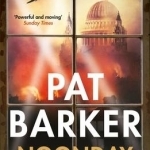
Noonday
Book
In Noonday, Pat Barker - the Man Booker-winning author of the definitive WWI trilogy, Regeneration -...
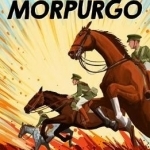
War Horse
Michael Morpurgo and Francois Place
Book
Before the Steven Spielberg film, before the National Theatre production, there was the classic...
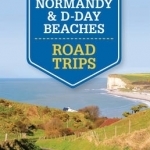
Lonely Planet Normandy and D-Day Beaches Road Trips
Lonely Planet, Stuart Butler, Oliver Berry and Jean-Bernard Carillet
Book
Lonely Planet: The world's leading travel guide publisher Discover the freedom of open roads with...
Lottie disney bookworm (1056 KP) rated Wendy, Darling in Books
Jun 17, 2021
Have you ever wondered what happened when Wendy, John and Michael returned from Neverland? Wendy, Darling by A. C Wise is about to reveal all, but let me warn you, it is far from a fairytale!
Life post-Neverland for the Darling children has been difficult to say the least. Upon their return Wendy was struck with a serious fever, their parents were casualties of the Titanic, Michael has recently returned from WWI with his own ghosts and John has financial struggles. However, from Wendy's perspective, these all pale in comparison: John and Michael have done the worst thing imaginable they have forgotten Neverland!
Wendy's refusal to let go of Neverland and her dogged determination to make her brothers remember their adventures causes great friction within the Darling family. Wendy finds herself labelled as a hysterical woman and is even confined to an asylum after raging at her siblings.
This is just one of the methods Wise uses to address the misogyny of the original Peter Pan story and it is a particularly harrowing one: the abuse Wendy faces at the hands of her "carers" is brutal and unforgiving in its detail. To everyone surrounding her, Neverland is Wendy's sickness, an imaginery world that she is hiding behind. However, several years after her release from St Bernadettes, Neverland still lives on in Wendy's memories and now it is catching up with her. Now Peter is flying out of her window again... with Wendy's daughter Jane in tow!
Wendy returns to a very different Neverland to that which she left. Although the island always seemed to play to Peter's every whim this time there is a dark, evil edge to it. Wise really plays on the fact that everyone idolised Peter in the original fairytale but this Peter has a barbaric, sinister personality along with a dangerous secret. Can Wendy rescue her daughter from the boy she used to worship? One thing is for sure, they're not playing a game anymore!
A. C Wise's writing almost hypnotises the reader, flitting between characters and time periods with ease without losing our interest. The undercurrent of a locked-away secret and the juxtaposition between Barrie/Disney's Neverland and Wise's makes this a real page turner.
Wendy herself is a flawed heroine but in my opinion that is the best kind. She has overcome so much loss and trauma and, although she still feels the pull of Neverland, she finds that motherhood has a much stronger claim on her heart and can provide her with so much more power than she ever imagined.
Wendy, Darling is an unflinching retelling of Peter Pan with a feminist edge. A. C Wise kidnaps and transports her readers to a dark and ominous Neverland which harbours a monstrous secret. Wendy and her daughter are on an adventure of fear, loss and grief. There is no make-believe in this fantasy land.
Thank you to Netgalley and Titan Books for the opportunity to read this e-ARC in exchange for an honest review. Wendy, Darling comes with trigger warnings for kidnap, death, trauma and abuse.
Life post-Neverland for the Darling children has been difficult to say the least. Upon their return Wendy was struck with a serious fever, their parents were casualties of the Titanic, Michael has recently returned from WWI with his own ghosts and John has financial struggles. However, from Wendy's perspective, these all pale in comparison: John and Michael have done the worst thing imaginable they have forgotten Neverland!
Wendy's refusal to let go of Neverland and her dogged determination to make her brothers remember their adventures causes great friction within the Darling family. Wendy finds herself labelled as a hysterical woman and is even confined to an asylum after raging at her siblings.
This is just one of the methods Wise uses to address the misogyny of the original Peter Pan story and it is a particularly harrowing one: the abuse Wendy faces at the hands of her "carers" is brutal and unforgiving in its detail. To everyone surrounding her, Neverland is Wendy's sickness, an imaginery world that she is hiding behind. However, several years after her release from St Bernadettes, Neverland still lives on in Wendy's memories and now it is catching up with her. Now Peter is flying out of her window again... with Wendy's daughter Jane in tow!
Wendy returns to a very different Neverland to that which she left. Although the island always seemed to play to Peter's every whim this time there is a dark, evil edge to it. Wise really plays on the fact that everyone idolised Peter in the original fairytale but this Peter has a barbaric, sinister personality along with a dangerous secret. Can Wendy rescue her daughter from the boy she used to worship? One thing is for sure, they're not playing a game anymore!
A. C Wise's writing almost hypnotises the reader, flitting between characters and time periods with ease without losing our interest. The undercurrent of a locked-away secret and the juxtaposition between Barrie/Disney's Neverland and Wise's makes this a real page turner.
Wendy herself is a flawed heroine but in my opinion that is the best kind. She has overcome so much loss and trauma and, although she still feels the pull of Neverland, she finds that motherhood has a much stronger claim on her heart and can provide her with so much more power than she ever imagined.
Wendy, Darling is an unflinching retelling of Peter Pan with a feminist edge. A. C Wise kidnaps and transports her readers to a dark and ominous Neverland which harbours a monstrous secret. Wendy and her daughter are on an adventure of fear, loss and grief. There is no make-believe in this fantasy land.
Thank you to Netgalley and Titan Books for the opportunity to read this e-ARC in exchange for an honest review. Wendy, Darling comes with trigger warnings for kidnap, death, trauma and abuse.
BankofMarquis (1832 KP) rated Paths of Glory (1957) in Movies
Feb 18, 2024
Early Kubrick Masterpiece
Dore Schary, then head of production of MGM, like Stanley Kubrick’s first film, THE KILLING (1956) so he hired Kubrick to develop film stories from the studios pile of scripts and purchased novels. Finding nothing the he liked, Kubrick remembered reading Humprhey Cobb’s anti-war novel PATHS OF GLORY and suggested that. Schary (like every other studio exec in Hollywood at the time) turned down the opportunity to make this bleak anti-war film.
When Schary was fired by MGM, Kubrick went to Kirk Douglas (who liked THE KILLING as well and was anxious to work with Kubrick). Using his clout as one of the Major Stars of Hollywood at the time, Douglas got United Artists to agree to make the picture.
Starring Douglas, PATHS OF GLORY tells the WWI tale of a group of soldiers who mutiny when asked to take on a suicide mission to take the impregnable “ANTHILL”.
In this film, Kubrick starts to come into his own as a unique and visionary filmmaker who would insist on take after take until he got the exact shot he was looking for.
The highlight of the film is the 5 minute tracking shot of the troops attacking the Anthill, a tracking shot that films such as SAVING PRIVATE RYAN and 1917 owe a debt to. It is a masterclass of filmmaking from Kubrick.
As for Douglas – who was also used to having complete control of his films – PATHS OF GLORY was a battle of wills between Kubrick and Douglas with each man coming out on top (at times)…to the betterment of the film.
On the acting front, Douglas has never been better as the Commander of the unit that has the mutiny and who decides to defend the soldiers who are on trial for mutiny and cowardice and who quickly realizes that the trial is a sham and that there is no way for him these soldiers to get a fair trial.
Adolph Menjou (the 1937 version of A STAR IS BORN) and George Macready (GILDA) are appropriately blustery and out-of-touch as the Senior Officers who give (and then defend) their impossible orders. Richard Anderson (Oscar in the SIX MILLION DOLLAR MAN) is slimey and slippery as the prosecuting attorney (who knows that the outcome of the trial is a done-deal) while Ralph Meeker (THE DIRTY DOZEN), Joe Turkel (the bartender in THE SHINING) and Timothy Carey (who famously clashed with Kubrick during filming in a calculated attempt to get some publicity for himself and was subsequently fired from the film) are the unfortunate 3 who are put on trial as representatives of their troops while the outstanding performance in this film is fomer child actor Wayne Morris (KID GALAHAD) as drunken Lt. Roget.
Even though this film is about ½ war battle film and ½ a court-room drama, it is the visuals of the folly of war that will stick with the audience long after it is over…and stick with it it does as this film was selected for preservation in the United States Film Registry in 1992 and is still listed in IMDB’s TOP 100 Rated films.
Letter Grade A-
8 stars (out of 10) and you can take that to the Bank(ofMarquis)
When Schary was fired by MGM, Kubrick went to Kirk Douglas (who liked THE KILLING as well and was anxious to work with Kubrick). Using his clout as one of the Major Stars of Hollywood at the time, Douglas got United Artists to agree to make the picture.
Starring Douglas, PATHS OF GLORY tells the WWI tale of a group of soldiers who mutiny when asked to take on a suicide mission to take the impregnable “ANTHILL”.
In this film, Kubrick starts to come into his own as a unique and visionary filmmaker who would insist on take after take until he got the exact shot he was looking for.
The highlight of the film is the 5 minute tracking shot of the troops attacking the Anthill, a tracking shot that films such as SAVING PRIVATE RYAN and 1917 owe a debt to. It is a masterclass of filmmaking from Kubrick.
As for Douglas – who was also used to having complete control of his films – PATHS OF GLORY was a battle of wills between Kubrick and Douglas with each man coming out on top (at times)…to the betterment of the film.
On the acting front, Douglas has never been better as the Commander of the unit that has the mutiny and who decides to defend the soldiers who are on trial for mutiny and cowardice and who quickly realizes that the trial is a sham and that there is no way for him these soldiers to get a fair trial.
Adolph Menjou (the 1937 version of A STAR IS BORN) and George Macready (GILDA) are appropriately blustery and out-of-touch as the Senior Officers who give (and then defend) their impossible orders. Richard Anderson (Oscar in the SIX MILLION DOLLAR MAN) is slimey and slippery as the prosecuting attorney (who knows that the outcome of the trial is a done-deal) while Ralph Meeker (THE DIRTY DOZEN), Joe Turkel (the bartender in THE SHINING) and Timothy Carey (who famously clashed with Kubrick during filming in a calculated attempt to get some publicity for himself and was subsequently fired from the film) are the unfortunate 3 who are put on trial as representatives of their troops while the outstanding performance in this film is fomer child actor Wayne Morris (KID GALAHAD) as drunken Lt. Roget.
Even though this film is about ½ war battle film and ½ a court-room drama, it is the visuals of the folly of war that will stick with the audience long after it is over…and stick with it it does as this film was selected for preservation in the United States Film Registry in 1992 and is still listed in IMDB’s TOP 100 Rated films.
Letter Grade A-
8 stars (out of 10) and you can take that to the Bank(ofMarquis)
Nadya R (9 KP) rated The Nightingale in Books
Jul 2, 2018
I am speechless. I finished the book 15 minutes ago, but I am still staring in the wall and tears are falling down my cheeks. It’s been a while since I’ve been that touched by a book. This story and this two sisters turn upside down the idea of the women’s role in WWII.
Kristin Hanna leads us through the dangerous way of Isabelle Rossignol - The Nightingale why fly to the freedom. She is one of the most active person in the Resistance. Fully opposite to her is her sister Vianne. She is humble and mild tempered she doesn’t want to be a hero. Her only wish is to survive the war together with her family. The Rossignol sisters were abandoned by their father (veteran of WWI) after their mother dead. Soon Vianne met Antoine and has a family with him. While Isabelle’s rebellious temper doesn’t allow her to accept her father decision and escape from every boarding school, she was sent to, and continue to go back to her father and to fight for his love. Exactly this part of her character made her The Nightingale- a woman equal to the men.
"Women were integral to the Resistance. Why couldn't men see that?"
On the other side Vianne doesn’t want to take part in the war. She doesn’t rise her voice, doesn’t ask questions. She’s been comfortable to the Nazis. And that is her point- been quiet and invisible means that you will survive. But as much as you want to close your eyes for injustice there is a breaking point - all these brutalities and injustice make us leave our ‘comfortable’ lives in the name of hundreds of saved lives.
The rebellious in Isabelle takes her to the centre of the French Resistance. First- used as a courier, she prove herself and began an important member in no time. Exposing her life to danger, she leads a pilot after a pilot through the high peaks of Pyrenees to their freedom. Meanwhile Vianne is living with Nazi officer, when one day the war bent her. She initiated a mission to save the Jews children.
"Vianne started them off on a song and they picked it up instantly, singing loudly as they clapped and bounced and skipped. Did they even notice the bombed out buildings they passed? The smoking piles of ribble that had once been homes? Or was destruction the ordinary view of their childhoods, unremarkable, unnoticeable."
But the war left its mark on all these kids, forced them to grow up fast and even in very young age they have already seen all these misfortunes in the world.
"Really, Maman? How long must we pretend?" The sadness-and the anger-in those beautiful eyes was heartbreaking. Vianne apparently had hidden nothing from this child who'd lost her childhood to war."
The author doesn’t save anything. At the end of the book she takes us to the Ravensbrück - the concentration camp in Germany for women why took an action against the Nazis. It’s known as one of the most brutal of them all. The picture, the author shows us, are breathtaking. All these tortures, rapes all these things that they did to women... I kinda felt it son deep and personal. I am not really able to write about this.
And at the end let’s speak about the love in the book. Here you can find lots of love.
Love of country.
Mother love.
Sisters love.
Love in the wartime is strong but faded at the same time. Set on the background, love is there but she(love) realises that in this times there is no place for blind love stories. On other hand this love is even stronger.
Every stolen second.
Every kiss is unspoken ‘Goodbye'.
Every meeting may be the last one.
".. a broken heart hurts as badly in wartime as in peace. Say good-bye to your young man well."
When it comes to war we imagine all these men risking their lives in the name of their country. But this is the story about war but trough women’s view. A women’s war on the shadow. Taking a risk of being caught and executed they keep delivering the message between the Resistance members. They are the connection between all pieces of the puzzle.
"Men tell stories. Women get on with it. For us it was a shadow war. There were no parades for us when it was over, no medals or mentions in history books. We did what we had to during the war, and when it was over, we picked up the pieces and started our lives over."
Kristin Hanna leads us through the dangerous way of Isabelle Rossignol - The Nightingale why fly to the freedom. She is one of the most active person in the Resistance. Fully opposite to her is her sister Vianne. She is humble and mild tempered she doesn’t want to be a hero. Her only wish is to survive the war together with her family. The Rossignol sisters were abandoned by their father (veteran of WWI) after their mother dead. Soon Vianne met Antoine and has a family with him. While Isabelle’s rebellious temper doesn’t allow her to accept her father decision and escape from every boarding school, she was sent to, and continue to go back to her father and to fight for his love. Exactly this part of her character made her The Nightingale- a woman equal to the men.
"Women were integral to the Resistance. Why couldn't men see that?"
On the other side Vianne doesn’t want to take part in the war. She doesn’t rise her voice, doesn’t ask questions. She’s been comfortable to the Nazis. And that is her point- been quiet and invisible means that you will survive. But as much as you want to close your eyes for injustice there is a breaking point - all these brutalities and injustice make us leave our ‘comfortable’ lives in the name of hundreds of saved lives.
The rebellious in Isabelle takes her to the centre of the French Resistance. First- used as a courier, she prove herself and began an important member in no time. Exposing her life to danger, she leads a pilot after a pilot through the high peaks of Pyrenees to their freedom. Meanwhile Vianne is living with Nazi officer, when one day the war bent her. She initiated a mission to save the Jews children.
"Vianne started them off on a song and they picked it up instantly, singing loudly as they clapped and bounced and skipped. Did they even notice the bombed out buildings they passed? The smoking piles of ribble that had once been homes? Or was destruction the ordinary view of their childhoods, unremarkable, unnoticeable."
But the war left its mark on all these kids, forced them to grow up fast and even in very young age they have already seen all these misfortunes in the world.
"Really, Maman? How long must we pretend?" The sadness-and the anger-in those beautiful eyes was heartbreaking. Vianne apparently had hidden nothing from this child who'd lost her childhood to war."
The author doesn’t save anything. At the end of the book she takes us to the Ravensbrück - the concentration camp in Germany for women why took an action against the Nazis. It’s known as one of the most brutal of them all. The picture, the author shows us, are breathtaking. All these tortures, rapes all these things that they did to women... I kinda felt it son deep and personal. I am not really able to write about this.
And at the end let’s speak about the love in the book. Here you can find lots of love.
Love of country.
Mother love.
Sisters love.
Love in the wartime is strong but faded at the same time. Set on the background, love is there but she(love) realises that in this times there is no place for blind love stories. On other hand this love is even stronger.
Every stolen second.
Every kiss is unspoken ‘Goodbye'.
Every meeting may be the last one.
".. a broken heart hurts as badly in wartime as in peace. Say good-bye to your young man well."
When it comes to war we imagine all these men risking their lives in the name of their country. But this is the story about war but trough women’s view. A women’s war on the shadow. Taking a risk of being caught and executed they keep delivering the message between the Resistance members. They are the connection between all pieces of the puzzle.
"Men tell stories. Women get on with it. For us it was a shadow war. There were no parades for us when it was over, no medals or mentions in history books. We did what we had to during the war, and when it was over, we picked up the pieces and started our lives over."
